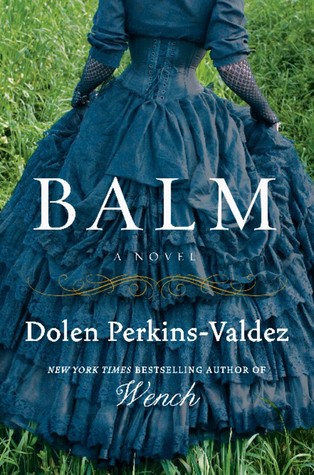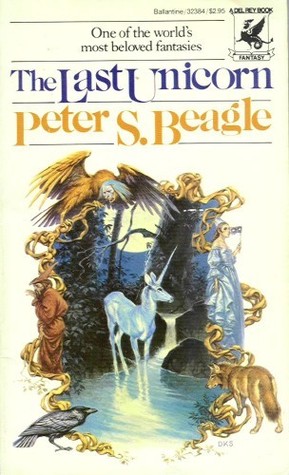Elizabeth Bear was born on the same day as Frodo and Bilbo Baggins, but in a different year. She is the Hugo, Sturgeon, Locus, and Campbell Award winning author of 27 novels (The most recent is Karen Memory
1. What book are you currently reading?
I'm reading Dolen Perkins-Valdez's Balm
2. What upcoming book you are really excited about?
I'm currently reading Yoon Ha Lee's Ninefox Gambit, which is coming out next summer from Solaris. (I was fortunate enough to get an advance manuscript.) It's a sharply inventive space opera that I think will appeal to Hannu Rajaniemi and Ian Banks fans.
Also, there's a Scott Lynch novel that's nearly finished that I'm, personally, dying to read. ;)
3. Is there a book you're currently itching to re-read?
I so rarely have time to reread these days, and it makes me sad. There's such a flood of new books and new writers that I feel that I'm not even keeping abreast of a tenth of the stories even in my own genres. That said, I will be rereading Caitlin R. Kiernan's The Drowning Girl soon, because I need to write a critical essay on it. And I have been wanting to go back and reread some Octavia Butler and some Roger Zelazny. Also, a whole pile of James White's Sector General stories, which are delightful and seem to have been largely forgotten.
The problem with trying to keep abreast of new developments is that sometimes I forget what it's like to relax into the hands of a master of the craft. I recently read Ursula Le Guin's Lavina, for example--and damn, she's good. The best writers make reading and enjoying their work deceptively easy.
4. How about a book you've changed your mind about over time--either positively or negatively?
I did reread The Forever War this past year, and one of the things that struck me about it this time was that, while I liked it fine the first time, I really enjoyed it more now. There's so much going on in that book that my younger self was still a little too didactically minded to pick up on. Forty-something me is a little less convinced, I think, that there are solutions that will be the best for everybody than twenty-something me was (a pretty common side effect of accruing life experience and bad joints, I suppose), and so the various iterations of society that our protagonist encounters and finds vaguely dissatisfying for various reasons really--the farce struck home in ways it didn't when I was younger and took myself Much More Seriously.
I also came back to T. H. White's Arthur books--The Sword in the Stone, et. al., as an adult. They'd been largely opaque to me when I tried to read them as a young teen, as I recall, and then I sat down and ripped right through the whole sequence a couple of years back. They're viciously funny social satire, which I wasn't equipped to handle when I first tackled them.
5. What's one book, which you read as a child or young adult, that has had a lasting influence on your writing?
I'm going to cheat and give you two. One is Peter Beagle's The Last Unicorn, which is my ideal book. Someday I want to write something that complicated, joyous, painful, sprightly, engaging, and just plain fun. It made me want to figure out how those tricks worked so I could do them myself. That thing where he can have you laughing at the top of a page and crying by the bottom... the language... the tangled escalation of tension... It's not just a great book; it's an unpretentious and fun book. And it's one that intentionally undermines one of the great tropes of fantasy--that a magical interlude must end. It allows its protagonists to change and be scarred, but nobody has to go home to a mundane existence afterward. It taught me about deconstructing the baseline assumptions of the genre.
The other is Richard Adams' Watership Down, which I have read the covers off two copies of. I am now on my third. It was the first "grownup" book that I read, and I basically memorized it. The writing, the characters, the setting, the mythology--it's a first-rate epic fantasy, which happens to be about rabbits. There are certainly a number of other fantasies with animal protagonists, but for me none of them even remotely come close to that one. And what Watership Down taught me was that in writing alien intelligences, it made sense to think of the world from their point of view, rather than trying to make them seem human. That a rabbit could act like a rabbit and still be an effective and engaging point of view character for a human reader.
6. And speaking of that, what's *your* latest book, and why is it awesome?
My latest book is a Weird West steampunk adventure called Karen Memory, which features heroic saloon girls versus disaster capitalists. I've been describing it as Leverage, if the protagonists were all hookers. It's got a political thriller plot and a murder mystery plot and a whole pile of super-competent and snarky characters!





